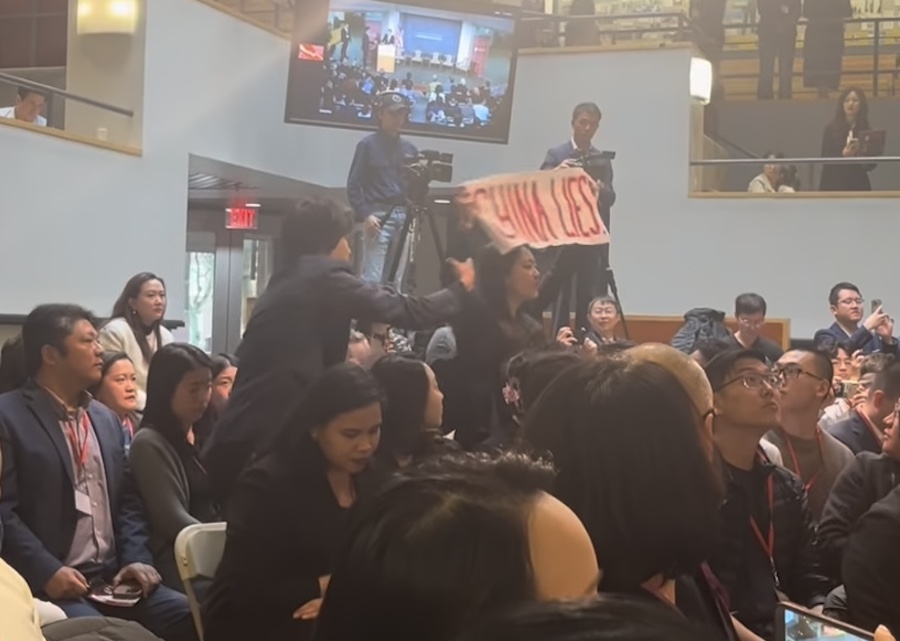THE SAMDHONG RIMPOCHE INTERVIEW / SUROJIT MAHALANOBIS
You had planned to send a delegation to China to discuss how the differences between the Dalai Lama and the Chinese government can be solved and how his return to Tibet can be made possible. What happened to that plan?
First I will correct a point. His Holiness has been trying to hold serious dialogues with the PRC authorities, for the last 23 years, but that is only for the six millions of Tibetans’ future, not for his return. He may or may not return. The issue is the welfare of the people of Tibet, who are not happy as they are not able to lead their normal life. They are marginalised in their own country. Masses of the Han race have been settled into Tibet, reducing the original Tibetans into a minority in their own land. His Holiness is trying to reach out to the PRC authorities to resolve this issue and secure genuine autonomy for the Tibetans, through negotiations.
The attempts had been off and on for many years but it’s only in the last year that we were able to establish a direct contact with the PRC leadership. A four-member delegation had visited Beijing, Lhasa and many other cities, had a good interaction at all places with the authorities. Now we are hoping to send a second delegation very soon.
Does ‘genuine autonomy’ mean what has been provided to Hong Kong after its transfer from the British hold, or do you have some other parameters to define it?
Of course we like what has been provided to Hong Kong, but we are asking for a little more. The Hong Kongese and the Chinese have different identities. For a visit to Hong Kong from the Chinese mainland, one needs a special permit from the Hong Kong authority, and from Hong Kong to the mainland a visa or a permit from the mainland. Therefore, the population influx is being controlled. Also Hong Kong has a considerable degree of democracy and, therefore, also the rule of law and a free press.
The Chinese economy has developed enormously during the last quarter of the 20th century. Has Tibet been denied the benefits of this development?
Contrary to the world-wide understanding about China’s economic development during the last 15 years or so, I would say the development has been uneven. Certain selective pockets only saw a great deal of development. Large areas of China are still underdeveloped. Infrastructure, roads, airports have been built, trade has been developed, including in Tibetan areas, but most of these have benefited the affluent Hans. Tibetans with their standard of living cannot own vehicles. Besides, roads facilitate the non-Tibetans to reach the interiors of Tibet, settle there and use its natural resources. Roads are also for mobilising the military. These have nothing to do with uplifting the poverty-stricken Tibetans.
If you are accorded ‘genuine autonomy’, what do you think should be your priorities?
In that case our priority will be to attain self-sufficiency in as many areas as possible. We do not believe in a modern economic system. We do not believe in consumerism. We do not believe in globalisation. Because we consider all these anti-humanity. So we shall concentrate on agriculture, animal husbandry, protecting the natural resources and using these resources only through sustainable, appropriate methods. All appropriate technologies will be used to get the targeted revenue.
People should be made economically independent, not depending upon the central government or any foreign aid. We do not need any machine. We will follow the Gandhian economy totally. We will follow the pathway of growth that Acharya Vinoba Bhave has suggested. That is the only way humanity can survive today. Mankind cannot survive for more than 100 years from now, if globalisation isn’t checked now.









